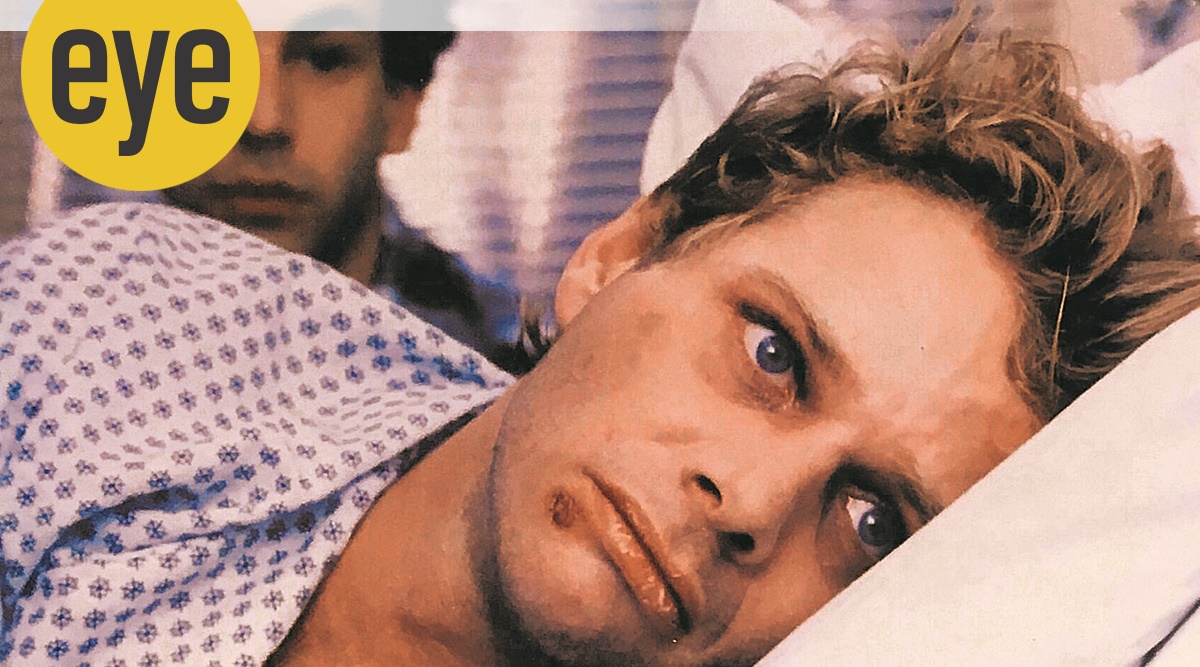 A still from the film Buddies
A still from the film BuddiesDeadly viruses have always been a magnet for the movies. In the worst of times, we need stories filled with hope, and such films as Steven Soderbergh’s 2011 Contagion, which some claim predicted the arrival of the coronavirus, end with the discovery of a vaccine. Prescient it may have been, but Contagion was strictly fiction. The truth was revealed much more recently, at the Toronto International Film Festival (TIFF), in 76 Days, a terrific documentary directed by New York-based Hao Wu.
The film gave us never-before access to the hospitals in Wuhan, where COVID-19 is said to have originated. The title refers to the number of days Wuhan was in lockdown, as doctors and medical workers struggled to contain the rising number of deaths in an atmosphere of fear and official crackdown on information. Wu worked with two filmmakers on the ground, creating a film which crackles with urgency and heroism. There will, doubtless, be many more films made on this pandemic, but 76 Days will always have the first-mover advantage.
In the panic spread by this most recent scourge, we have nearly forgotten how lethal HIV was in the early ’80s. It was a story that never left the news pages in those years, because there seemed to be no end to the deaths.
A few days back, I chanced upon the first feature made on the AIDS crisis by Arthur J Bressan Jr. The 1985 Buddies, available on MUBI, begins with the clattering of a telex machine, spilling out the names of the dead. The action shifts to a Manhattan hospital room where 33-year-old Robert is shown lying in bed, looking sick and spent, perking up only when a “buddy” shows up.
David, 25, a volunteer with a New York-based agency, finds Robert annoyingly “personal” to begin with: the latter asks pointed questions about the former’s partner (they’ve been together for five years), how “hot” he is, and how “it” (sex) is between the two of them. But, soon, David (David Schachter) sees, like we do, that the life in front of him is already ebbing. He realises that there can be nothing more intimate than sharing someone’s death, especially someone who has been comprehensively abandoned by his parents, his partners and the state.
Essentially a two-hander (we only hear the voices of the other characters), this low-budget film, shot over nine days, is poignant and political. Conservative authorities in the US were not willing to allocate funds for research when the first victims were found to be gay men. Hollywood was chary about addressing the issue, and Bressan Jr’s film was a pioneering effort to counter that hypocrisy and unease. Both the director and the actor who played Robert (Geoff Edholm) died soon after, of complications from AIDS.
The first big-budget Hollywood film on AIDS was the 1993 Philadelphia, starring Tom Hanks and Denzel Washington. In Bollywood, Onir made My Brother…Nikhil, with Sanjay Suri and Purab Kohli, in 2005. With the help of technology, it’s taken no time at all for filmmakers to respond creatively to COVID-19, even with a worldwide lockdown. Clearly, it will be reel magic which will keep us going till we see the end of this pandemic in real life.
📣 The Indian Express is now on Telegram. Click here to join our channel (@indianexpress) and stay updated with the latest headlines
For all the latest Eye News, download Indian Express App.